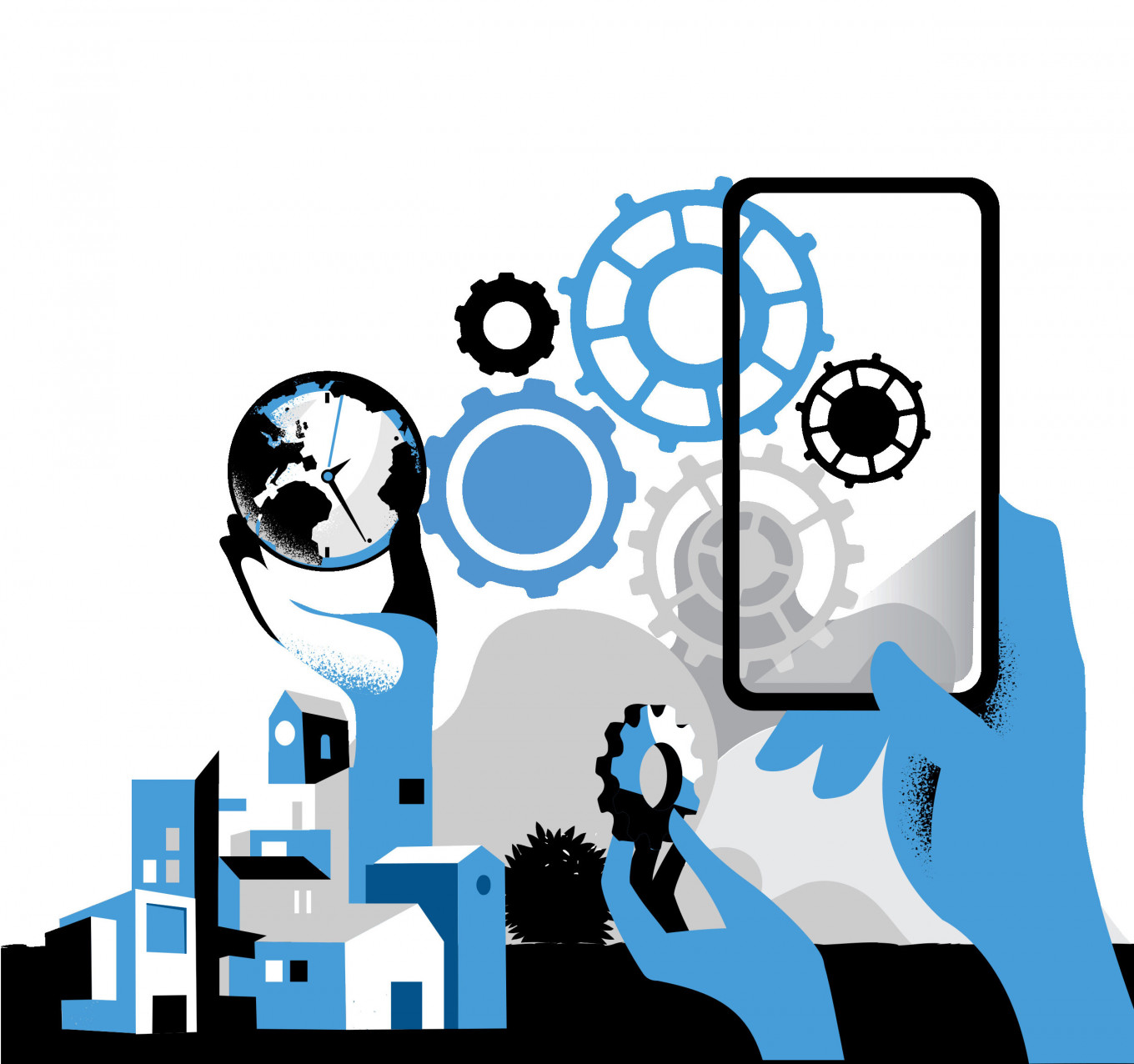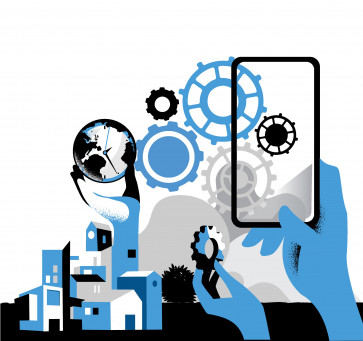Popular Reads
Top Results
Can't find what you're looking for?
View all search resultsPopular Reads
Top Results
Can't find what you're looking for?
View all search resultsInsight: Toward a meaningful digital transformation
The success of Indonesia’s digital economy should be measured not just by the number of unicorn companies, but also by how digitalization improves productivity and worker well-being across sectors.
Change text size
Gift Premium Articles
to Anyone

As I sat in my house waiting for iftar during Ramadan, I browsed an online food-ordering app, carefully selecting a meal for my family. After ordering, I passed the time by scrolling through a movie-streaming app. Fifteen years ago, such convenience was beyond my imagination. Now, Ramadan is experienced differently by the younger generation, no longer bound to wait in front of the TV for the adzan (call to prayer) amid syrup ads.
This convenience, especially notable in urban areas, stems from Indonesia’s rapid digitalization. Everyday activities, such as ordering food, commuting, messaging and entertainment, have largely shifted to smartphones. The Indonesian Association of Internet Providers (APJII) reports a significant increase in internet penetration, from 64.8 percent in 2018 to 78.19 percent, helping to bridge the rural-urban gap.
While the COVID pandemic accelerated the digital transformation in the past few years, some part of this massive transformation owes much to the rise of “unicorns”, start-ups valued at over US$1 billion, reshaping our economic landscape. While impactful, it raises the questions: Should the proliferation of unicorns be the sole indicator of digital success? And does digitalization offer equal benefits to everyone?
The deeper digital divide
The digital divide encompasses more than just geographical internet access; it includes socioeconomic disparities. The World Bank’s 2021 “Beyond Unicorn Report” revealed a considerable gap: Indonesia’s poorest are five times less likely to access the internet compared with the wealthiest. In the business sector, internet adoption is at 24 percent for richer household enterprises, but a mere 1 percent for poorer ones.
With digitalization extending across sectors, it is imperative that its benefits reach all, not just a select few. Take workers in the tech ecosystem, for example. Studies by Digital Financial Services Innovation Lab, Education and Innovation Research and the secretariat of the National Council for Financial Inclusion (DNKI) show that 20 million workers depend on digital platforms, with 80 percent feeling more financially secure post-joining. Yet, some of them such as gig workers face unstable conditions and limited career growth opportunities, unlike formal workers.

Recognizing these issues, the government’s Visi Indonesia Digital and Blueprint for Digital Economy 2030 seek to harness digitalization for the broader well-being, aiming for a digital economy that comprises 20 percent of GDP by 2030. Such an ambitious goal necessitates policies to extend the reach of digitalization’s benefits. The advent of new technologies, like generative AI, is transforming traditional roles, underscoring the importance of adapting to new career paths and the urgency for re-skilling.


















